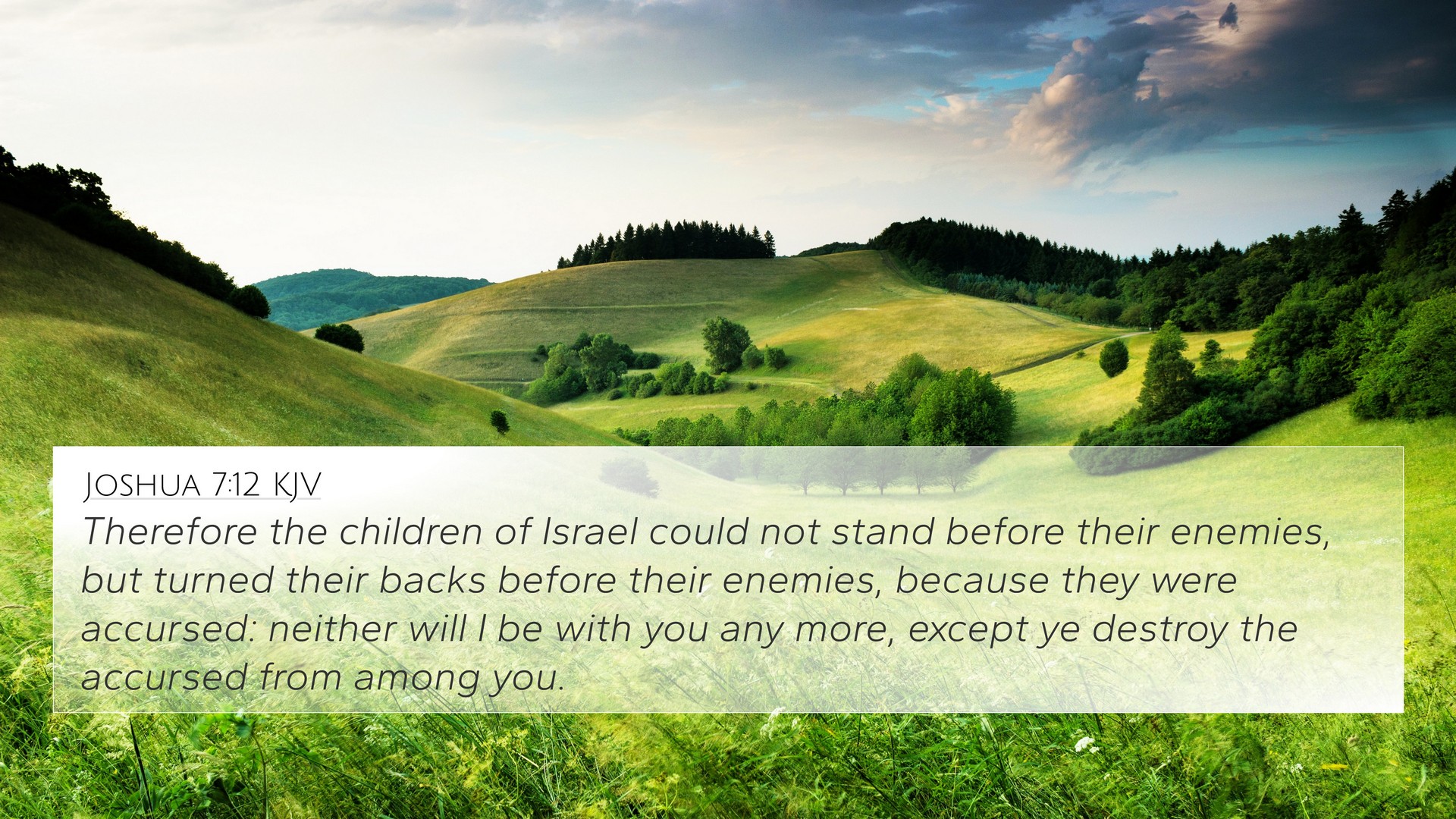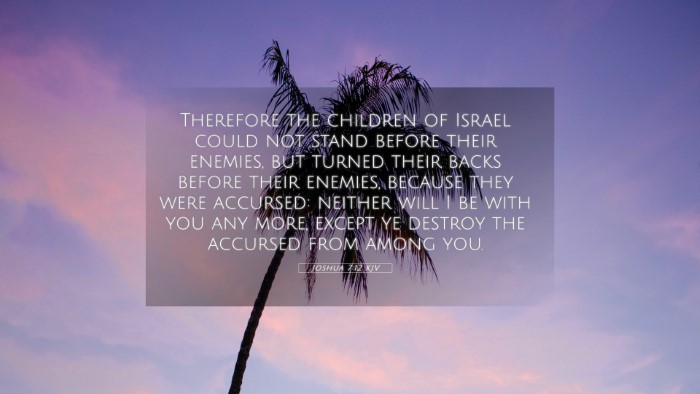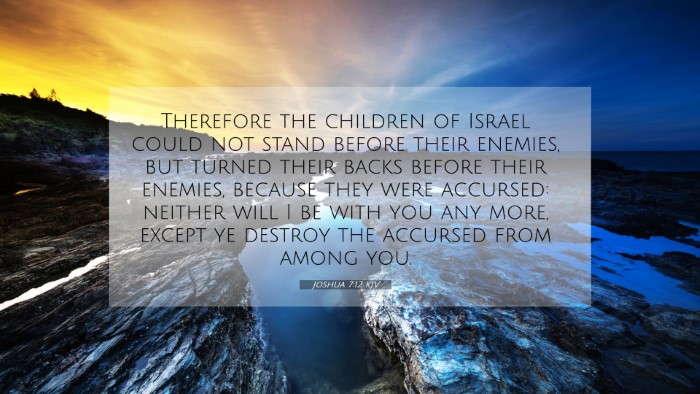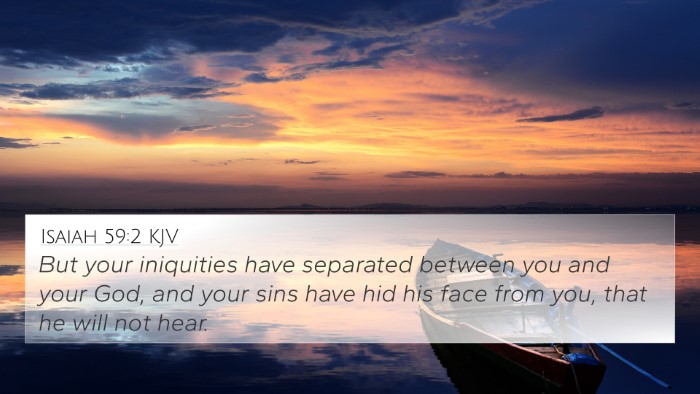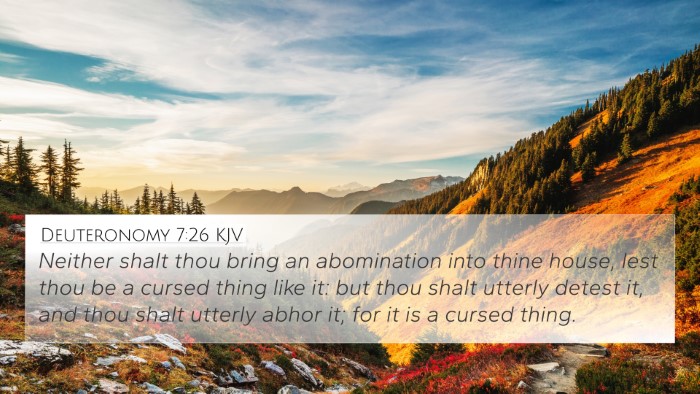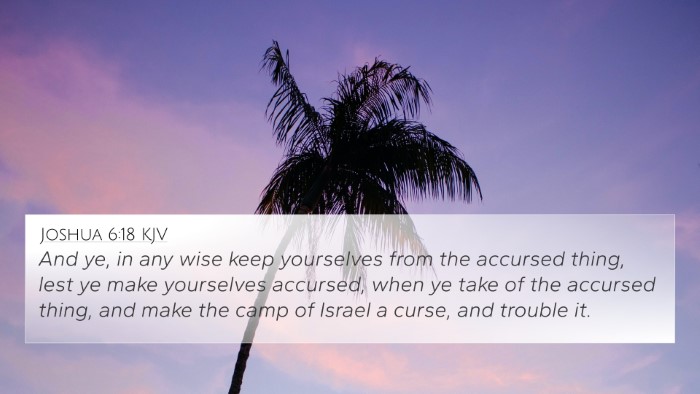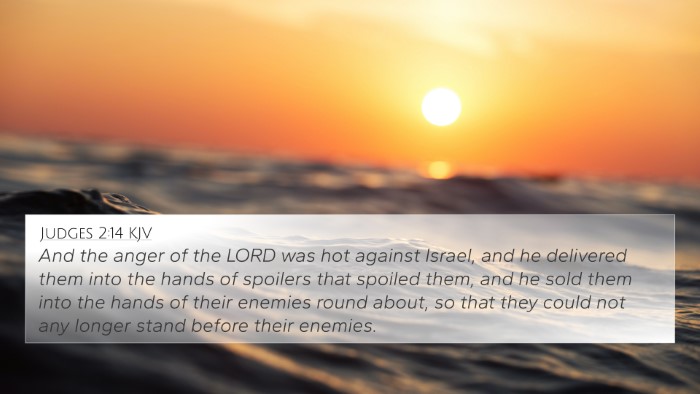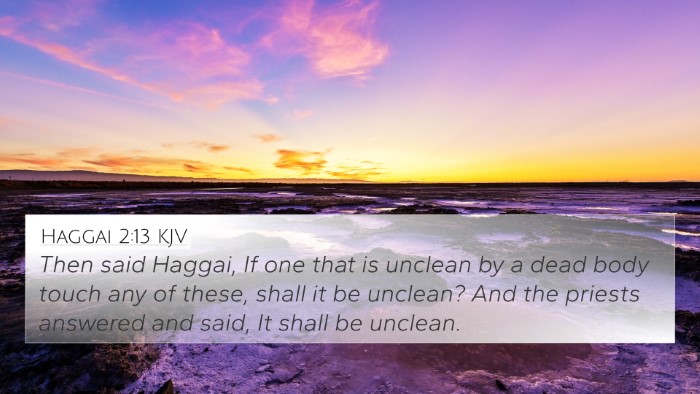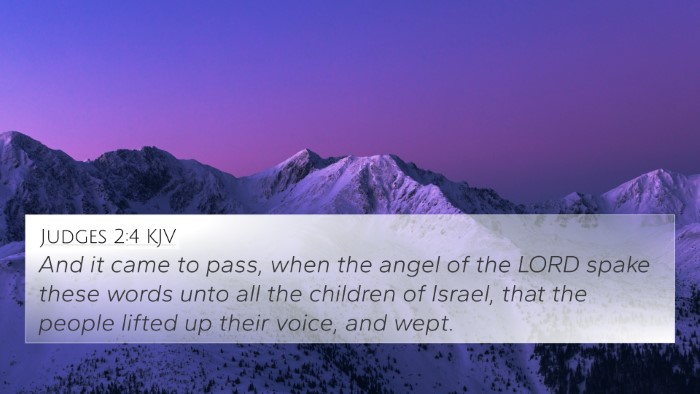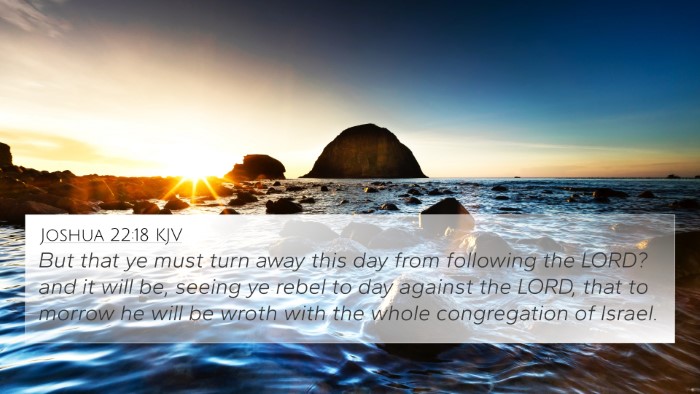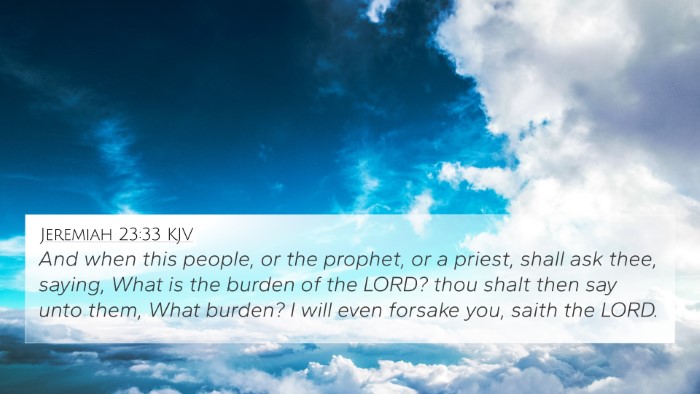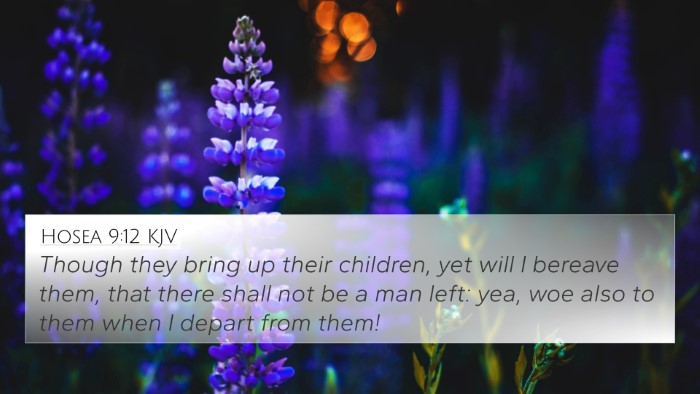Understanding Joshua 7:12
Joshua 7:12 states:
And God said, “Therefore the children of Israel could not stand before their enemies, but turned their backs before their enemies, because they were accursed: neither will I be with you anymore, except ye destroy the accursed from among you.”
This verse highlights the consequences of sin and disobedience within the community of Israel. It captures God's warning to the Israelites about the repercussions of violating His commands, specifically regarding the ban on taking devoted things from Jericho.
Contextual Analysis
1. Background of Israel's Sin:
After the successful conquest of Jericho, God commanded the Israelites not to take any of the spoils for themselves. However, Achan disobeyed this command, leading to Israel's defeat in their next battle against Ai (Joshua 7:1-5). This sin is pivotal, as it directly ties into the thematic elements of collective responsibility and the holiness required of God's people.
Key Insights from Public Domain Commentaries
- Matthew Henry: Matthew Henry emphasizes that the defect in Israel's victory was not due to military weakness but spiritual unfitness. Their failure to seek God's favor resulted in a lack of divine support.
- Albert Barnes: Barnes clarifies that God's presence among His people is contingent upon their adherence to His laws. He highlights how disobedience brings a curse, which in this case is manifest in the military defeat Israel faces.
- Adam Clarke: Clarke points out that the term "accursed" refers to the items that had been set apart for destruction. This illustrates the gravity of sin and its impact not only on the individual but on the community.
Thematic Connections
This verse connects with various themes in the Bible, such as:
- Consequences of Sin: The idea that disobedience leads to dire consequences resonates throughout scripture, particularly in Galatians 6:7, which states, "For whatever a man sows, that he will also reap."
- God's Holiness: God's demand for holiness from His people is a recurring theme. In 1 Peter 1:16, the call to be holy as God is holy reflects the seriousness of Israel’s sin.
- Community Responsibility: The concept that one person's sin can affect the entire community finds echo in 1 Corinthians 5:6, which discusses how a little leaven leavens the whole lump.
Bible Verse Cross-References
- Exodus 20:5 - Discussing the consequences of sin across generations.
- Deuteronomy 28:15 - Outlining curses for disobedience to God's commandments.
- Joshua 6:18-19 - Reference to keeping the accursed things apart.
- James 1:15 - Highlighting the progression of sin leading to death.
- Romans 6:23 - Exploring the wage of sin being death.
- Psalm 66:18 - Emphasizing that unconfessed sin can hinder prayer.
- Micah 3:4 - Showing how sin leads to divine silence in times of need.
- John 9:31 - God’s attention towards the righteous and His distance from the wicked.
- Hebrews 12:14 - Pursuing peace and holiness to see the Lord.
- Proverbs 15:29 - Illustrating that God is far from the wicked but hears the righteous.
Overall Implications for Believers
The core message of Joshua 7:12 serves as a warning and a lesson in holiness and obedience. Believers today can glean from this verse the significance of staying aligned with God's instructions and the communal aspect of sin that can hinder collective spiritual progress.
Tools for Bible Cross-Referencing: Engaging with biblical texts through cross-referencing can reveal deeper meanings and connections that enhance understanding.
Conclusion
In studying Joshua 7:12, we are reminded of the serious nature of disobedience to God. The effects of individual choices bear weight on the community and reflect the broader theological themes of holiness, consequences of sin, and the necessity of repentance. Delving into interconnected scripture through cross-referencing also enriches our understanding of the messages contained within the Bible.
